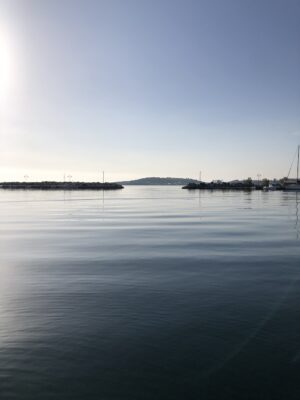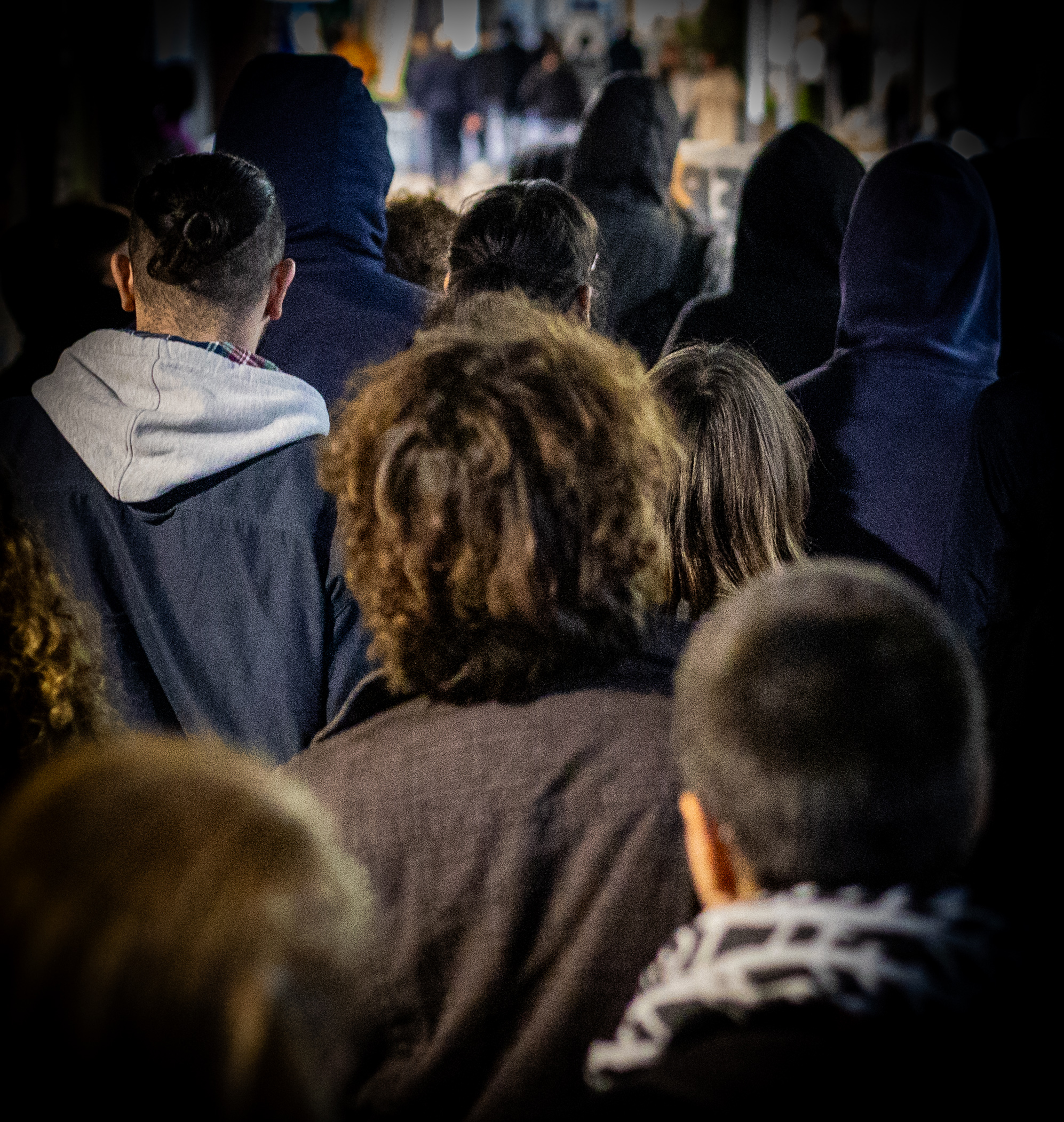Search
To search for an exact match, type the word or phrase you want in quotation marks.
A*DESK has been offering since 2002 contents about criticism and contemporary art. A*DESK has become consolidated thanks to all those who have believed in the project, all those who have followed us, debating, participating and collaborating. Many people have collaborated with A*DESK, and continue to do so. Their efforts, knowledge and belief in the project are what make it grow internationally. At A*DESK we have also generated work for over one hundred professionals in culture, from small collaborations with reviews and classes, to more prolonged and intense collaborations.
At A*DESK we believe in the need for free and universal access to culture and knowledge. We want to carry on being independent, remaining open to more ideas and opinions. If you believe in A*DESK, we need your backing to be able to continue. You can now participate in the project by supporting it. You can choose how much you want to contribute to the project.
You can decide how much you want to bring to the project.

Another “thank you” message from the family members of the people buried last week. Right below, two missed calls and several multilingual messages that express frustration for the lack of information: Where is her body? Why will no one tell us when we can bury her?
My friend asked me to take one of her friends to an appointment, so the day starts early today. I drop off the friend and her baby at the Kara Tepe refugee camp and drive to the next village for coffee while I wait for them. It seems like summer is already here; the sun is strong even at 8 a.m. I buy my coffee and breakfast at the village bakery, and I can’t help but notice that the bakers’ English has improved considerably since I last visited years ago. They seem a lot friendlier to me now, too.
On the glass showcase, I spot several handwritten notes from people thanking the bakers for their kindness and for making them feel “at home while away from home.” Something else catches my eye: many of the notes end with phrases like “may God bless you.” My mind quickly runs through the list of Christian NGOs, and I remember that this village hosts one of the biggest. With that in mind, it’s not hard to imagine why the bakers have suddenly become friendly anglophiles.
With my Freddo Espresso in hand, I walk to the tiny fishing port. The view is idyllic: an Orthodox church with a silver cupola sits at the forefront of the village, followed by a line of seafood restaurants and tavernas. The small port is filled with little fishing boats and pleasure craft. I sit and contemplate as I sip my morning coffee. The sun blinds me. The morning fog makes the Kara Tepe camp in the distance almost disappear. I can barely see it. It’s a great metaphor for what the Government is attempting: to render migrants invisible. The white tents behind the fog look just as eerie as the stories that the people living in them portray.
There aren’t many people out yet. It’s the first working day after Easter, and the island’s population is still recovering from several days of overdrinking and overeating. On days like this, everything becomes a little more obvious. The few people at the port are a mix of all the layers that this island holds. Fishermen work on their nets at the end of the port. The people working at the kafeneios [1]Ed. Note: Kafeneio is a traditional style café or bar in Greece, usually frequented only by men have already had their coffees and are now distributing caffeine to the rest of us.
Slowly, people in red shirts begin gathering about twenty meters from me. I quickly identify them as the big Christian NGO. You get used to this, judging people quickly by their NGO. This is one of those NGOs we loathe, so I watch them carefully, judging their behavior from the very first step. I’ve heard all the stories about their queerphobic behavior. They were one of the first NGOs I heard about. I remember when they used to distribute bibles in Moria camp, trying to convince people that their queerness was curable.
As I wait, I notice a couple of men dressed in dark blue uniforms walking toward the kafeneio. I can’t help but wonder if they’ve just come back from a shift or are getting ready to start one. Less than a week ago I was accompanying family members at the burial of several individuals who drowned a few meters away from EU soil. Testimonies from survivors in the press referred to the shipwreck being caused by people wearing that same blue uniform. As I tried to hold the grief of the family members, I masked the rage that invaded every part of my body, but the sight of the uniformed men promptly brings it forward. They mostly look the same to me: joyful or sometimes stoic… They certainly don’t look like men who may have just committed atrocities at sea. It’s just as Hannah Arendt described: the banality of evil. We live surrounded by that evil; a big portion of our neighbors are average men who sheepishly follow the orders of torturing migrants. They might believe there is a bigger reason behind it — or maybe not. At the end of the day, it is just a job, perhaps, and they perform it as routinely as they would if they were working at a bakery.
Yet their mere presence, especially when I am alone, still unsettles me. Precisely because they seem so unaffected after doing what everyone knows they do, precisely because of how unremarkable they look, I feel the danger of that banal evil.
I finish my coffee and start to uncomfortably check the time on my phone. I suppose I have time for another coffee and a cigarette. I walk to the closest kafeneio; a collection of individual men sitting at adjacent tables observes my every move. Most of them are playing with their komboloi [2]Ed. Note: A kombolloi is a Greek traditional string of beads (similar to a prayer beads but with no religious meaning) used by men to relieve stress or pass time by repetitively handling the beads. and smoking their morning cigarette as they drink a frappé or an ellinikó (Greek coffee). They rarely interact with each other.
I walk up to the bar and order my coffee to go. As I walk past the men, I mutter a soft “Kalimera,” which they enthusiastically reciprocate. It’s always a gamble with the local population. Five years ago, many of them took to the streets in protest against the migrant influx into their island. Some locals called for a strike and demonstration under the slogan “We Want Our Island Back.” This was, without doubt, one of the biggest demonstrations I have seen on Lesbos. I walked through the crowds of angry locals, struggling to keep myself from crying from the hostility I felt from their chants. A month later, they organized themselves efficiently, set fire to squats where migrants slept, and attacked NGOs. They created informal checkpoints and stopped NGO cars, beat and threatened anyone whose body had been racialized, as well as anyone seen supporting the migrant struggle.
In one of the most violent episodes I have seen on this island, the organized locals prevented a dinghy full of people trying to reach safety from arriving at the port of the village of Thermi. It wasn’t particularly spectacular violence, but it was deeply emotional hatred, the type that sinks into your body, leaving you physically unwell. A group of white Greeks stood at the port, pushing the boat away and yelling, “We don’t want you here, go back!”
I sit right back at the edge of the port. It’s 8:30, and the people in red shirts have already left. I look at the rocks that form the barrier of the port against the sea. Sitting on the rocks are two people with a fishing line. I identify them as asylum seekers, as they wear the red string from which their identification card hangs. Many people wear them throughout the day, as most of their day-to-day activities force them to constantly identify themselves. They identify themselves when they leave the camp; many NGOs also require them to show their cards in order to access services. The police might stop them as they walk through the city and ask them to identify themselves. I guess this is part of what I call the borderization of the migrant body. Many steps in the daily life of a migrant on Lesbos include constant identity checks — a constant othering that we are all conditioned to accept as soon as we catch a glimpse of that red string.
As I finish profiling everyone around me, I think about the different images of me and my comrades that exist in the minds of those I just profiled. If it were them and not me writing this text, what would they define me as? Which of the layers of the island would they place me in?
To those in the red shirts, I might be a radical, dressed in a black solidarity shirt, a queer person they can save from eternal doom. To the officers, I am a danger to law and order, a potential smuggler, an agent of the Turks, a threat to their country’s status quo. To the men in the kafeneio, I might just be an NGO worker, one of those Europeans who ruined their island with the “call effect.” The asylum seekers might see me as one of those friendly NGO people, called here because of some ideals. All of the above would be giving me too much credit.
My phone beeps, and I look at the message from the friend I had dropped at her appointment: “We are waiting for you.” I walk back to the car, with half a coffee left in my to-go cup and the cigarette still burning. It’s 9 a.m. now, time to go to work. I drop mother and daughter at the top of Mytilini, park the car, and walk to the office. I pass by the Coast Guard, neatly docked. I watch them, they watch me, we observe each other as we both start our morning routines: neighboring foes.
I finally got some information about the next burial. I call the family back: “Unfortunately, all I can tell you is that they are still not ready to bury, some procedures are currently taking place. I know this is not what you wanted to hear, but I cannot give you a time estimate as to how long this will take. I apologize, really, I wish I could have told you something more.”
| ↑1 | Ed. Note: Kafeneio is a traditional style café or bar in Greece, usually frequented only by men |
|---|---|
| ↑2 | Ed. Note: A kombolloi is a Greek traditional string of beads (similar to a prayer beads but with no religious meaning) used by men to relieve stress or pass time by repetitively handling the beads. |

Ix first came to Lesbos in solidarity with people on the move and has remained ever since. As a solidarian, they’ve taken on many roles, but it boils down to one thing: doing what is needed, and learning by doing. They are involved in grassroots networks that support forcibly displaced people on the island and are part of the broader No Border activist movement. Their work includes research into the systemic violence of European border policies in Greece.
"A desk is a dangerous place from which to watch the world" (John Le Carré)